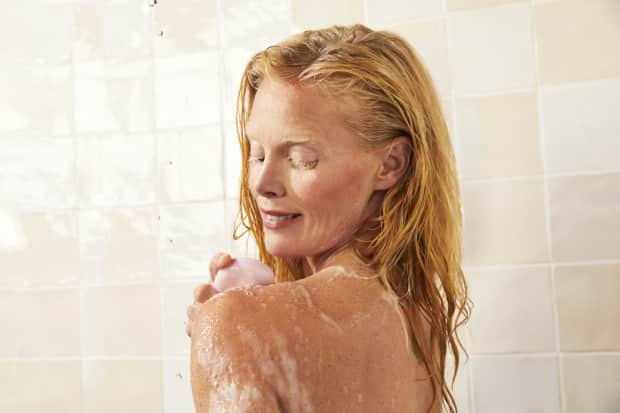
Green and natural personal care.
Last Updated: March 25, 2021
Wondering what harmful ingredients are lurking in your personal care products? Read on to discover what’s wrong with conventional soaps, deodorants and shampoos — and why you might want to switch to natural.
Do you know what's in your soap? What about your body spray or your favorite hair mask? Feminine care products like shampoo, deodorant, and perfume can hide some ugly truths behind their pretty bottles. There are lots of advantages to going natural, like saving money with DIY recipes and getting the perfect scent. Natural products may also lessen skin irritation, asthma, and other problems. You get control over what you put on your body, and you lower your exposure to potentially harmful substances, too.
Perfumes and fragrances
Artificial perfumes and fragrances are some of the worst asthma offenders. Many contain chemicals known to raise the risk of cancer or other health problems. Some products also include untested and/or unregulated chemicals. Manufacturers don't know what those chemicals do to users over time, and there's limited evidence that they're safe to use. The good news, though, is that nature smells awesome. There are plenty of natural fragrance options, and it isn't hard to make your own perfumes and body sprays. You can smell just the way you like, and you won't have to worry about what mystery chemicals are seeping into your skin.
Soaps
There are a lot more ingredients in a regular bar of soap or bottle of body wash than you may realize. While complicated ingredient names aren't automatically a sign that something is dangerous, a lot of chemicals with hard-to-pronounce names that often appear on soap labels may also cause you harm. These include chemicals that can affect the brain, liver, and kidneys, like dioxane. But soap is actually a very simple product, and it's easy to make it at home. Soap doesn't need preservatives if it isn't going to sit on a shelf for months or years, waiting to be purchased and used. You also have control over how your soap smells, and you can add soothing ingredients for dry skin. If you'd rather buy your soap, you still have plenty of natural options that pose less risk to your health as you get clean.
Deodorant
While there are lots of potentially harmful things in popular deodorants, the biggest offender is aluminum. Aluminum is added as an antiperspirant that blocks sweat glands, but it has a bad habit of getting into the body if you use it long enough. Doctors are looking at links between breast cancer and aluminum. They're also studying how aluminum can affect kidney function and whether it's connected to Alzheimer's disease. And there's a debate about how healthy it can be to plug up your sweat glands in the first place. Natural deodorants fight body odor without relying on artificial scents and potentially dangerous things like aluminum.
Hair care
Once upon a time, it was common to put the same ingredients used to degrease car engines in products made to degrease your scalp. Actually, this is still fairly common today. These chemicals are strong enough to damage your hair in the long term, and they may make issues like scalp sensitivity and dandruff worse. At best, they can irritate your scalp, but it's possible that they can also harm your endocrine system. Parabens are chemicals used as preservatives in cosmetics, hair products, and skin-care products that have been linked to hormone disruption and infertility. Natural hair care protects do not contain these kinds of chemicals and can still help to keep your hair shiny, clean, and strong.
- Best Eco-Friendly Hair Products
- DIY Herbal Hair Rinse for Strong and Shiny Hair
- Organic Hair Care Ingredients: What to Watch For
- How to Read Ingredients on Hair Product Labels
- Simple Homemade Conditioner
- Essential Oils for Hair
- Natural Oils for Hair Care
- How to Make Shampoo With Ingredients in Your Kitchen
Looking for more home advice, cleaning how-tos, and sustainable swaps you can make at home? Grove has you covered with our buying and cleaning guides. And let us know how if you have any cleaning questions (or share your own tips using #grovehome) by following Grove Collaborative on Instagram, Facebook, Twitter, and Pinterest.
If you're ready to make the transition to natural cleaning products, shop Grove Collaborative's cleaning essentials for the cleaning tools to tackle the job.
